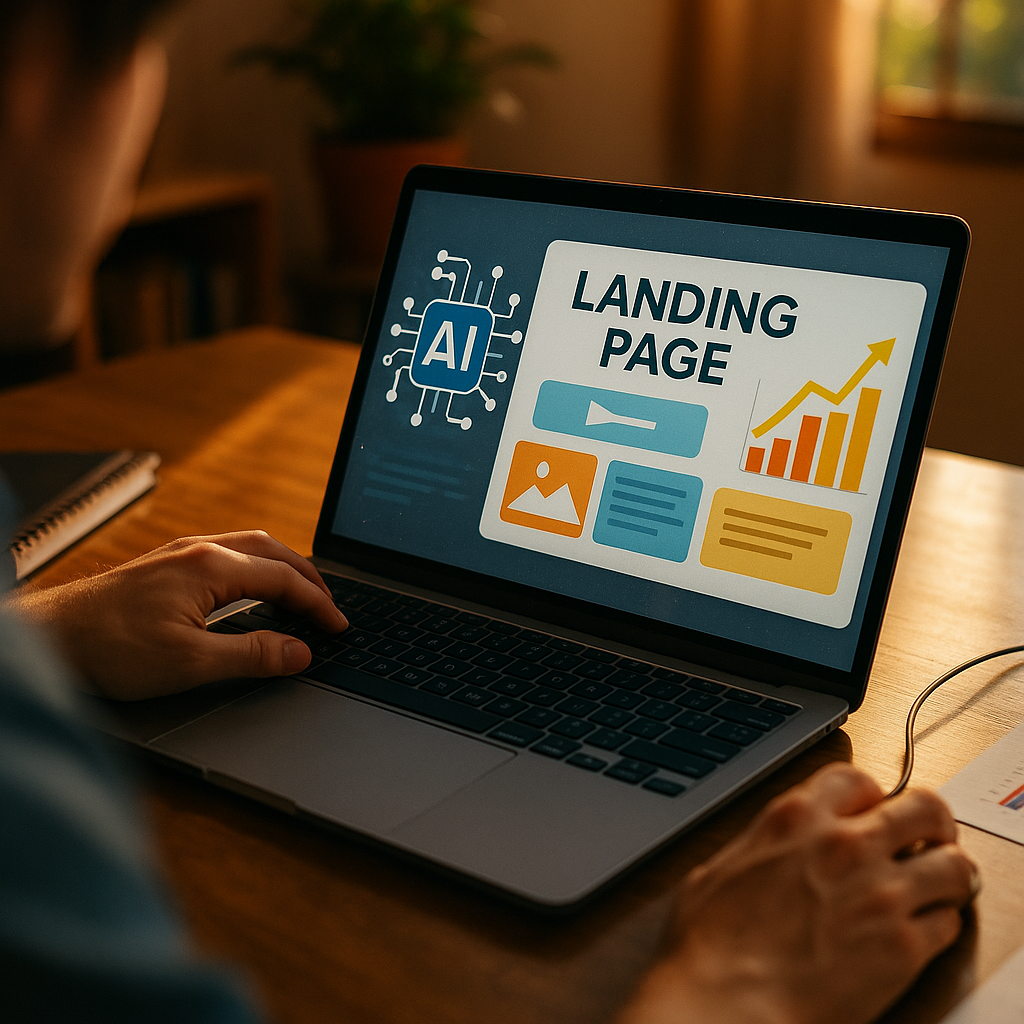Using AI to personalize your landing pages based on search query intent is quickly becoming essential for businesses that want to increase conversions and revenue online. By leveraging AI, marketers gain deep insights into user motivations. Discover how you can put these powerful tools to work and dramatically improve your site’s performance.
How AI Understands Search Query Intent
At the heart of delivering tailored landing page experiences lies the ability to decode what visitors genuinely want. Modern AI models analyze millions of search queries and user behaviors to differentiate between informational, navigational, and transactional intents. For example, if someone searches “best project management software,” AI recognizes investigational intent; for “buy project management software,” it’s clearly transactional.
Machine learning algorithms now understand nuance and context. Using natural language processing, they evaluate factors such as search modifiers (e.g., “best,” “cheap,” “how to”) and previous user behavior. This understanding ensures that your personalized landing pages align exactly with what searchers want, improving relevance and engagement.
Creating Personalized Landing Pages with AI
AI-powered platforms can dynamically generate landing pages that adapt in real time to the visitor’s intent, location, device, and even demographic profile. For example, a SaaS company targeting enterprise clients versus startups can present distinct messaging, features, and calls-to-action based on the query that led a potential customer to the site.
- Dynamic content blocks: Swap out headlines, testimonials, or offers for each intent segment.
- Recommendation engines: Suggest specific products or resources aligning with user motivation.
- Personalized visuals: Change images or videos to match audience expectations.
This high level of customization not only increases the time spent on site but also improves trust and the likelihood of conversion.
Optimizing SEO Performance Through Intent Personalization
In 2025, Google’s algorithms reward landing pages that prove helpful and relevant to each searcher. AI-driven personalization based on query intent helps sites rank better by:
- Reducing bounce rates with highly relevant experiences
- Boosting engagement signals, such as time-on-page and interactions
- Improving match between the SERP snippet and on-page content
Moreover, well-personalized pages align closely with EEAT principles (Experience, Expertise, Authoritativeness, Trustworthiness). This earns better trust scores from users and search engines alike. As a result, you maximize both organic search performance and conversion rates.
Ensuring Ethical and Secure AI Personalization
Personalization should always respect user privacy and data protection standards. With AI tools handling increasing user data, transparent consent mechanisms and strict compliance with GDPR and other regulations remain critical. Always communicate how user data is used, employ only necessary data points, and provide easy opt-out options.
Additionally, regular audits of your AI personalization logic help identify bias and maintain fairness. By prioritizing ethical AI practices, you gain a significant edge in user trust and long-term business sustainability.
Measuring Success: KPIs for AI-Personalized Landing Pages
The value of AI-driven personalization is only as strong as its measurable results. Leading marketers track key performance indicators (KPIs) to evaluate ROI and refine their strategies:
- Conversion rate uplift: Are more visitors taking desired actions?
- Engagement metrics: Has time on site or pages per session increased?
- Bounce rate reduction: Are fewer users leaving after landing?
- Revenue per visitor: Are profit margins rising with better targeting?
AI tools, when integrated with advanced analytics dashboards, break down these results by segment, intent, and personalization variable. This empowers ongoing optimization and stronger business outcomes.
Integrating AI Personalization into Your Marketing Stack
Adopting AI for landing page personalization requires seamless integration with your existing marketing technology stack. Most modern solutions offer robust APIs and plug-ins for major CMS, CRM, and analytics platforms, including real-time data sync. Begin with a clear strategy: define your goals, map high-value user journeys, and select AI tools that align with your needs.
Training your team and testing extensively will ensure smooth adoption. Prioritize platforms with transparent operation and explainable AI features, so your team always understands why certain content is shown to each user segment.
Conclusion
Using AI to personalize your landing pages based on search query intent drives deeper engagement and higher conversions while boosting SEO in 2025. By understanding intent, creating tailored content, and measuring results ethically, you build trust and outperform competitors. Commit to continuous optimization to realize all the benefits AI-driven personalization offers your digital marketing efforts.
FAQs: Personalizing Landing Pages Using AI and Search Intent
- How does AI detect search query intent?
AI uses machine learning and natural language processing to analyze keywords, search context, and user behavior. This enables it to differentiate between informational, navigational, and transactional search patterns, tailoring the landing page accordingly.
- What kinds of content can AI personalize on a landing page?
AI can personalize almost every element: headlines, product recommendations, images, calls-to-action, special offers, and even testimonials. The goal is to match the user’s expectations and boost engagement.
- Is AI-driven personalization compatible with data privacy laws?
Yes, when implemented with transparent consent, data minimization, and secure technologies. Leading AI solutions provide built-in compliance features for regulations such as GDPR, ensuring data is always handled ethically.
- How can I measure the ROI of AI-personalized landing pages?
Track KPIs such as conversion rate, bounce rate, average time on page, and revenue per visitor. Analytical tools integrated with AI platforms segment results so you can attribute improvements to personalization efforts.
- Does AI personalization help SEO?
Absolutely. By improving relevance and engagement metrics, AI-driven personalized pages gain higher search rankings and visibility, especially under Google’s 2025 algorithms emphasizing user helpfulness and trust.
